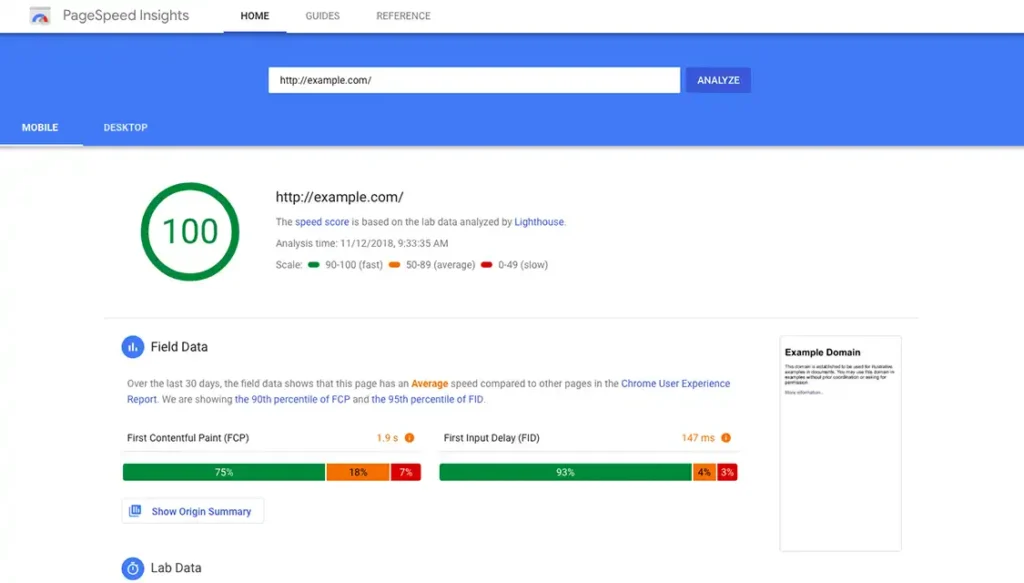You’ve probably heard that speed matters when it comes to websites, but let’s cut through the fluff and talk real talk. Fast websites aren’t just a “nice-to-have”, they’re a game-changer. Your website’s speed impacts everything from how users interact with it, to how search engines rank it, and even how likely visitors are to become paying customers.
 People today expect instant results. If your site takes too long to load, they won’t wait around. They’ll hit the back button and try another link. That’s not just a missed opportunity, it’s a potential lead walking straight into your competitor’s digital doors.
People today expect instant results. If your site takes too long to load, they won’t wait around. They’ll hit the back button and try another link. That’s not just a missed opportunity, it’s a potential lead walking straight into your competitor’s digital doors.
This article breaks down why speed is more than just a technical checkbox. It’s a competitive advantage that can make or break your site’s success. If you care about ranking, retention, and revenue, keep reading.
First Impressions Happen Fast, Like, Really Fast
When someone lands on your website, the clock starts ticking, fast. Studies show users form an opinion about your site in under three seconds. If your homepage or landing page doesn’t load before that window closes, most users won’t give you a second chance.
It doesn’t matter how beautiful your design is or how valuable your content might be. If your site stalls during that crucial first moment, users bounce, and many never come back. Especially on mobile, where people are scrolling on the go, speed is everything.
First impressions aren’t just visual, they’re technical. The way your site loads communicates professionalism, trust, and quality. A fast-loading site signals you’re serious about your business. A slow one feels sloppy, and that impression sticks long after the tab is closed.
Google Ranks Fast Websites Higher
Speed isn’t just for users, it matters to Google too. In fact, Google uses page speed as a ranking factor. If your site is sluggish, it’s not only annoying to users, it’s also less likely to show up on the first page of search results.
Google’s algorithm favors websites that load quickly and offer a smooth experience. Fast websites keep visitors engaged, reduce bounce rates, and signal higher quality to search engines. That combo improves your SEO ranking, making your site more visible to people searching for what you offer.
Core Web Vitals are a set of speed-related performance metrics Google now uses to measure real-world user experience. If your site flunks these tests, it can hurt your ability to rank, no matter how good your content is. Bottom line, if you want to win the SEO game, fast loading speed is a must.
A Slow Website is a Sales Killer
A slow website doesn’t just annoy people, it costs you money. Studies have shown that for every second of delay, conversions can drop by as much as 20 percent. That means fewer form submissions, fewer calls, and fewer sales.
It’s a silent killer. You might be getting traffic, but if your site loads slowly, visitors will leave before taking action. That could mean thousands of dollars in missed revenue every month, especially if you’re investing in ads or SEO to bring people in.
Speed also affects credibility. Users often associate speed with professionalism. A fast site feels sharp and modern. A slow site makes your business look outdated or unreliable, and that kind of impression turns people away before you even get a chance to sell.
What Makes a Website Fast?
A fast website doesn’t happen by accident, it’s the result of smart design, efficient code, and quality hosting. Many DIY site builders or bloated themes load a lot of unnecessary code that drags your performance down from the start.
One of the biggest factors is your hosting provider. If you’re using cheap shared hosting, your site is fighting for resources with hundreds of others. Premium hosting might cost more, but it delivers faster response times and more reliability, especially under traffic spikes.
You also need to optimize images, reduce unnecessary plugins, and use proper caching and a content delivery network (CDN) to improve load times globally. Everything on your site should be intentional, from the scripts you run to the fonts you load.
Can You “Fix” a Slow Website?
Sometimes yes, but not always. If your site is slow because of oversized images or lack of caching, there are fixes you can apply. You can compress files, set up performance plugins, and remove unnecessary extras to improve speed.
However, if the issue is deep in the structure, like a bloated theme or clunky page builder, patching won’t get you far. In those cases, it’s usually more efficient to rebuild from scratch with performance in mind, using lightweight tools and clean code.
The truth is, fixing speed takes more than a plugin or two. It takes a strategy. You need to know what’s causing the slowdown, then make the right technical decisions to address it long term.
Want a Fast Website That Actually Converts?
If your website is slow, you’re losing traffic, rankings, and sales, and it doesn’t have to be that way. I specialize in building fast, mobile-optimized websites that load quickly and convert visitors into clients.
Whether you’re launching something new or your current site feels sluggish, I can help. I offer flexible options, including monthly plans or custom one-time builds, so you get a high-performing website without a massive upfront cost.
These aren’t cookie-cutter sites. I build with speed, SEO, and usability in mind, so you get a site that works as hard as you do. Let’s build something that ranks, converts, and looks amazing while doing it. Contact me here or check out my Web Design Packages.
Bonus: Want to See How Fast Your Site Is?

You don’t need to guess if your website is slow, there are tools that will show you exactly how it’s performing. Google PageSpeed Insights and GTmetrix let you plug in your URL and get a breakdown of your site’s speed and what’s causing slowdowns.
Check both mobile and desktop results. Many websites look fine on a laptop but perform terribly on mobile, which is where most people are browsing today. If your mobile score is low, it’s time to take action.
Speed isn’t just technical, it’s strategic. It affects everything from your bounce rate to your bottom line. If your site isn’t performing, it’s probably costing you more than you realize, and fixing it might be the best investment you make this year.


